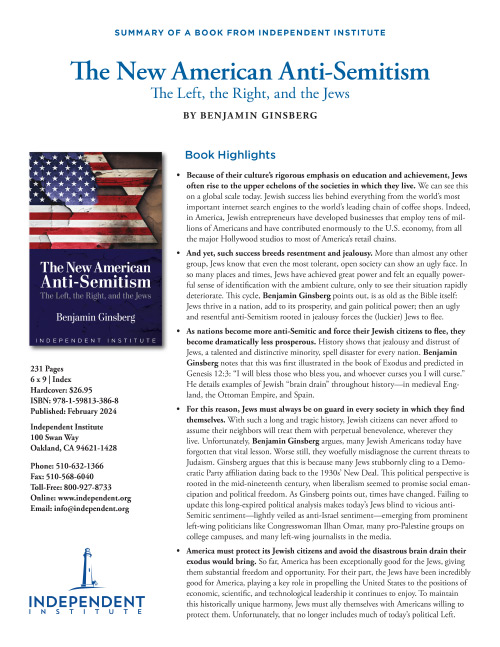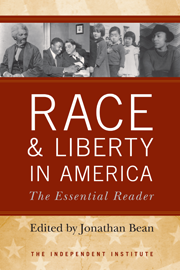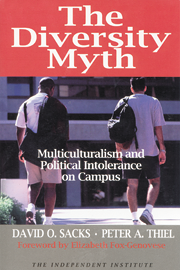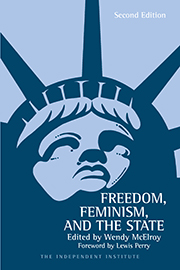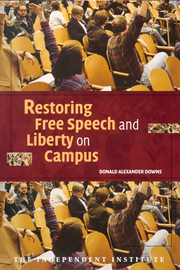| Price: | $26.95 |
| Formats |
Hardcover |
eBook |
| Price: | $26.95 |
| Formats |
Hardcover |
eBook |
Overview
The New American Anti-Semitism: The Left, the Right, and the Jews is a clarion call—not only to Jews, but to all Americans. As a nation, we must wake up and face the rising anti-Semitic threat and act accordingly.
But that threat is not coming from its usual source. The most virulent form of anti-Semitism today, Ginsberg warns, is the result of toxic identity politics and anti-Israeli sentiment coming from today’s political Left.
Perhaps the most persecuted people in all of history, Jews have stood tall in the face of unprecedented persecution in all places, at all times. Their culture’s rigorous emphasis on education and achievement catapults them, Ginsberg argues, to the upper echelons of the societies in which they live. But their success too often breeds resentment and jealousy, leading to an ugly anti-Semitism that has led, historically, to unspeakable violence.
In this urgent new work, Dr. Benjamin Ginsberg—political scientist, professor, and bestselling author—exposes the ugly face of this new, progressive anti-Semitism (which is also thriving in Europe). To combat it, he urges American Jews to form new political alliances, particularly with evangelical Christians.
The stakes of not doing so, says Ginsberg, are horrifically high—not only for the survival of the Jewish people, but for America’s survival. After all, the Jews have contributed immeasurably to America’s scientific, cultural, and economic achievements. Jews have been good for America; and America has been good to the Jews. But what once was so can change ... and Jews can never afford to forget their history.
Read this book and learn:
- Why Jewish people have always persisted in the face of persecution;
- Why the new face of Jewish persecution has found a home on university campuses, Left-leaning media outlets, and other unlikely places;
- The high and horrible costs of anti-Semitism;
- The profound benefits of philo-Semitism;
- The details of the new alliances that must be made to ensure the continuing success of American Jews—and America itself;
- And much, much more...
In this must-read tour de force, Ginsberg enlightens readers by tracing the history of the Jewish people—starting from the children of Abraham and ending with Jews today—and urging Jews and Americans to learn the lessons of that history. Now.
Contents
Preface
Introduction
- Anti-Semitism Today: Three Questions to Ask Anti-Semites
- How Anti-Semitism Became a Progressive Ideology
- Why the Jews Persist
- The Benefits of Philo-Semitism and the Costs of Anti-Semitism: Genesis 12:3
- The Myth of American Exceptionalism
- Why Are the Jews Still Democrats?
- New Alliances: Jews and the Christian Zionists
Epilogue
Appendix
Notes
Index
About the Author
Detailed Summary
- Because of their culture’s rigorous emphasis on education and achievement, Jews often rise to the upper echelons of the societies in which they live. We can see this on a global scale today. Jewish success lies behind everything from the world’s most important internet search engines to the world’s leading chain of coffee shops. Indeed, in America, Jewish entrepreneurs have developed businesses that employ tens of millions of Americans and have contributed enormously to the U.S. economy, from all the major Hollywood studios to most of America’s retail chains.
- And yet, such success breeds resentment and jealousy. More than almost any other group, Jews know that even the most tolerant, open society can show an ugly face. In so many places and times, Jews have achieved great power and felt an equally powerful sense of identification with the ambient culture, only to see their situation rapidly deteriorate. This cycle, Benjamin Ginsberg points out, is as old as the Bible itself: Jews thrive in a nation, add to its prosperity, and gain political power; then an ugly and resentful anti-Semitism rooted in jealousy forces the (luckier) Jews to flee.
- As nations become more anti-Semitic and force their Jewish citizens to flee, they become dramatically less prosperous. History shows that jealousy and distrust of Jews, a talented and distinctive minority, spell disaster for every nation. Benjamin Ginsberg notes that this was first illustrated in the book of Exodus and predicted in Genesis 12:3: “I will bless those who bless you, and whoever curses you I will curse.” He details examples of Jewish “brain drain” throughout history—in medieval England, the Ottoman Empire, and Spain.
- For this reason, Jews must always be on guard in every society in which they find themselves. With such a long and tragic history, Jewish citizens can never afford to assume their neighbors will treat them with perpetual benevolence, wherever they live. Unfortunately, Benjamin Ginsberg argues, many Jewish Americans today have forgotten that vital lesson. Worse still, they woefully misdiagnose the current threats to Judaism. Ginsberg argues that this is because many Jews stubbornly cling to a Democratic Party affiliation dating back to the 1930s’ New Deal. This political perspective is rooted in the mid-nineteenth century, when liberalism seemed to promise social emancipation and political freedom. As Ginsberg points out, times have changed. Failing to update this long-expired political analysis makes today’s Jews blind to vicious anti-Semitic sentiment—lightly veiled as anti-Israel sentiment—emerging from prominent left-wing politicians like Congresswoman Ilhan Omar, many pro-Palestine groups on college campuses, and many left-wing journalists in the media.
- America must protect its Jewish citizens and avoid the disastrous brain drain their exodus would bring. So far, America has been exceptionally good for the Jews, giving them substantial freedom and opportunity. For their part, the Jews have been incredibly good for America, playing a key role in propelling the United States to the positions of economic, scientific, and technological leadership it continues to enjoy. To maintain this historically unique harmony, Jews must ally themselves with Americans willing to protect them. Unfortunately, that no longer includes much of today’s political Left.
America has been uniquely good to the Jews, and the Jews have been uniquely good to America. Few dispute this; after all, Jewish Americans have risen to the top of almost every major U.S. industry, from Hollywood to Wall Street. These industries employ tens of millions of Americans and have allowed the United States economy to boom on a global scale. But Jews, according to Ginsberg, should never forget that, though American Jews have gained unprecedented power and success, they remain a minority in America’s ever-growing population. They can never afford to forget their heritage, which includes as much tragedy as triumph.
Anti-Semitism comes in all forms, at all times, and from every point on the political spectrum. But in The New American Anti-Semitism: The Left, the Right, and the Jews, author Benjamin Ginsberg argues that American Jews are out of touch with the primary source of anti-Semitism today. Subscribing to an outdated paradigm of the American Left—one dating back to the 1930s’ New Deal era—they are blind to the anti-Semitic, anti-Israel, and pro-Palestine vitriol coming from leftist academics, journalists, and politicians. They insist that Donald Trump—a man with a Jewish daughter and son-in-law, who issued an executive order requiring federal agencies to treat anti-Semitism as a civil rights violation, and who cut off federal aid to colleges that tolerated anti-Semitic activity on campus— and his allies are the Nazis of today’s politics. This, Ginsberg maintains, not only is hopelessly out of touch; it is a dangerous error, one that no Jew can afford to make.
Jews, Ginsberg writes, must wake up to the new American anti-Semitism that comes from the political Left, not the political Right. The sooner Jews become aware of this new political paradigm, the better. After all, history shows what consequences could come for the Jews if they fail to see the writing on the wall.
Why Do the Jews Persist in the Face of Persecution?
Wherever they go, Jews make it a point to view themselves as a distinct, unique people. For this reason, complete assimilation into any one nation’s religious, cultural, or even political heritage is impossible— in fact, discouraged. If Jewish identity is to survive, according to Ginsberg, it must set itself apart without apology.
Ginsberg notes that the Jews are undoubtedly the most organized communal group in the United States. At the heart of every Jewish community is a synagogue, presided over by a rabbi who usually serves as both its spiritual leader and its secular leader. In addition to religious services, larger synagogues have a religious school that may involve anything from a rudimentary Sunday morning series of classes to a day school with instruction in all subjects in addition to religious classes. Many synagogues run elaborate cultural and social programs catering to various segments of the Jewish community, such as dances for Jewish singles, programs for Jewish senior citizens, social clubs and activities for Jewish children and teenagers, adult educational programs, lectures, and so forth.
Through their cultural and educational programs, Jewish groups have always persisted in the face of persecution. Ginsberg details the three major ways in which this happens. First, Jews acknowledge a debt to their forefathers to pass on their Jewish heritage to their children. To fail in this duty is to betray the millions of Jewish martyrs who fought and died over the past four thousand years. Second, Jews as a people have made an enormous contribution to civilization through the philosophical ideals and scientific principles they have introduced. Thus, Jews have an obligation to humanity to keep their distinctive identities, which have made these contributions possible. Third and finally, only as self-conscious members of the Jewish community can Jews lead meaningful lives. As long as these three principles are upheld, the Jews will always persist.
Genesis 12:3: The Benefits of Philo-Semitism and the Costs of Anti-Semitism
In the book of Genesis, God declares to Abraham, “And I will make thee a great nation; I will bless them that bless thee, and him that curseth thee I will curse.” This promise, Ginsberg asserts, is unequivocal, and it applies to today’s Jews in the same way it applied to the children of Abraham. God says those who treat the Jews well, he will bless; those who abuse them are accursed.
History, according to Ginsberg, bears this out—especially in America. With the gradual end of anti-Jewish discrimination, America’s Jews—whether the descendants of earlier immigrants or more recent arrivals—found an opportunity to use their talents fully. The result was an efflorescence of Jewish achievement that was an enormous brain gain for the United States. For example, Jewish scientists, including refugees from Nazi Germany, have been the nation’s leaders in physics, information science, medicine, and virtually every other scientific field. In fact, Jews currently constitute more than 40 percent of the scientists elected to the divisions of physics and applied physical sciences of the U.S. National Academy of Sciences. Some examples include Albert Einstein, Richard Feynman, Murray Gell-Mann, and others at the forefront of scientific theory. Leo Szilard was the principal developer of the nuclear reactor; Hyman Rickover pioneered the use of nuclear reactors to power ships; Felix Bloch was a pioneer in the development of semiconductors; Theodore Maiman built the first laser. Even the process of MRI diagnostic imaging is based on technology discovered by Isidor Isaac Rabi.
Ginsberg emphasizes that the list of Jewish innovations is very long. Jewish contributions to America’s high standard of living, especially in commerce and science, are virtually uncountable.
The Mystery and Tragedy of Jewish History
The matter of brain gains and drains sheds light on the recurring pattern of Jews’ rise and fall. Repeatedly, Jews rise to positions of wealth or power, only to find themselves attacked, tormented, exiled, or worse. Spain, Germany, and Soviet Russia are all relevant examples, but as Ginsberg notes, many other examples stretch back some two millennia, and even longer if one wishes to give credence to the account of the rise and fall of the Jews of Egypt as presented by the book of Exodus.
A historically nomadic people, Jews in the diaspora typically sought security in alliances with rulers and regimes, offering services in exchange for protection. This habit persists to this day. And yet, as Ginsberg points out in The New American Anti-Semitism and other writings, this “fatal embrace” has proven unwise—indeed, often deadly. The truth is that Jews cannot fully entrust their protection to the state, however valuable they make themselves to it. The lessons of history have repeatedly made this clear. It’s time to learn these lessons in America today, before the new American anti-Semitism charts an even uglier course.
New Alliances
To whom can the Jews turn? In the nineteenth and early twentieth centuries, the Jews’ most dangerous enemies were concentrated on the political Right. It was then reasonable and prudent for Jews to seek allies on the political Left.
But times have changed.
Many of today’s evangelical Christians see the birth of the state of Israel as the fulfillment of biblical prophecy. They see this eschatological “Gathering of Israel” as a prerequisite for the Second Coming of Jesus Christ. For this reason, many evangelical Christians fervently defend Israel, Israel’s interests, and the Jews. Ginsberg recommends that American Jews open their eyes to the goodwill that many American evangelical Protestants harbor toward them. Ginsberg implores American Jews at the very least to stop attacking evangelical preachers and pastors for criticizing radical Islamic groups, as the Anti-Defamation League so often does. Failing to do this, he warns, will result in grave consequences.
Praise
“Mr. Ginsberg‘s book should be required reading for those who are unclear about the roots of antisemitism and how Jewish-hatred continues to poison the politics and culture of many countries, including our own.”
—Cal Thomas, The Washington Times
“This book could not be timelier. Benjamin Ginsberg uses his deep knowledge of Jewish history to show that Jews, long
identified with leftwing causes, in many ways, are not natural allies of the left. A culture of separateness and high
achievement make the Jews vulnerable to political pathologies from wherever they come—and two of the most destructive,
anti-Zionism and wokeism, come from the left. With the help of fascinating detail, this book shows that Jews need neither
right nor left but a society based on the universal values they brought into the world many centuries ago.”
—David Satter, author of Age of Delirium: The Decline and Fall of the Soviet Union
“Broadly conceived and richly documented, The New American Anti-Semitism is essential reading for all who seek to
understand not just ‘the new American Anti-Semitism,’ but also the cycles of lethal antisemitism over the centuries in the
Western world. It is vital reading for our own time.”
—Eunice Pollack, Ph.D., author of Racializing Antisemitism: Black Militants, Jews, and Israel, 1950–Present


